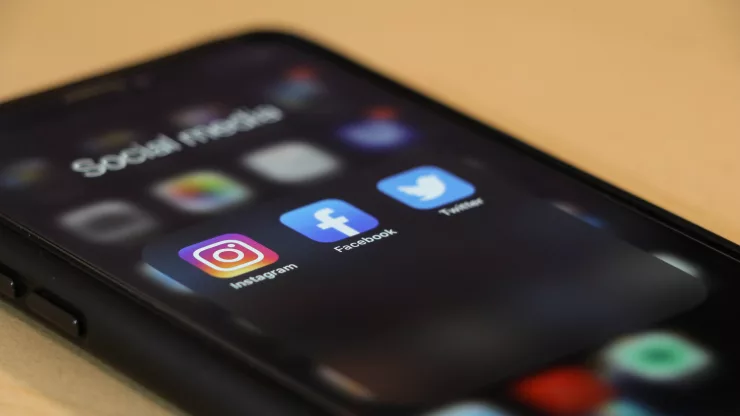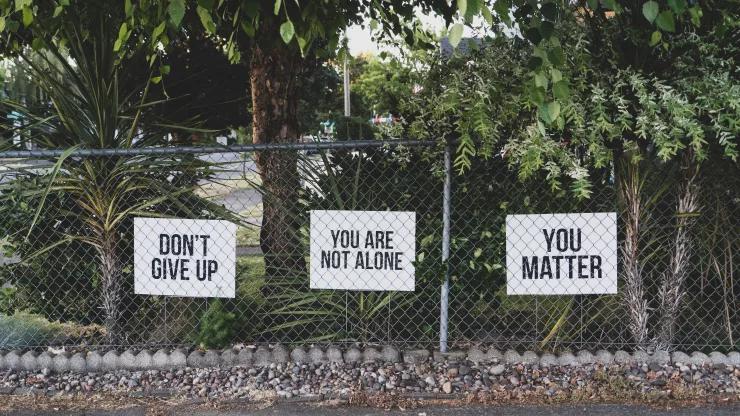INTRO: The Relationship Between Social Media and Our Happiness
In today’s world, social media has become an integral part of our daily lives. It has revolutionized the way we communicate, connect, and share information with the world.
However, the impact of social media on our happiness and well-being has been a topic of debate for some time now.
While some argue that social media has a positive impact on our mental health, others believe that it can be detrimental to our happiness and well-being.
The truth is that social media can have both positive and negative effects on our mental health. It all depends on how we use it.
Social media can be a powerful tool for building relationships, finding support, and staying connected with loved ones.
However, it can also be a source of stress, anxiety, and isolation if we use it excessively or in unhealthy ways.
In this article, we will explore the positive and negative effects of social media on our happiness and well-being, and provide tips on how to use it mindfully to improve our mental and physical health.
The Positive Effects of Social Media on Our Well-being
Social media can have many positive effects on our mental health and well-being. Here are some of the ways in which social media can improve our happiness:
-
Connect with others: Social media can help us stay connected with friends and family, especially those who live far away. This can provide a sense of social support and reduce feelings of loneliness and isolation.
-
Find support: Social media can be a powerful tool for finding support and resources for mental health issues. Many online communities offer support and advice for those struggling with depression, anxiety, and other mental health conditions.
-
Spread positivity: Social media can be a platform for spreading positivity and kindness. Sharing uplifting messages, inspiring quotes, and acts of kindness can boost our own happiness and the happiness of others.
The Negative Effects of Social Media on Our Mental Health
While social media can have many positive effects on our mental health, it can also have negative effects. Here are some of the ways in which social media can impact our happiness:
-
Comparison and envy: Social media can create a culture of comparison and envy, where we feel pressure to present a perfect image of ourselves online. This can lead to feelings of inadequacy, low self-esteem, and jealousy.
-
Cyberbullying: Social media can also be a platform for cyberbullying, which can have a severe impact on mental health. Cyberbullying can lead to anxiety, depression, and even thoughts of suicide.
-
Addiction: Social media can be addictive, leading to excessive use and a lack of productivity. This can lead to feelings of guilt, anxiety, and low self-esteem.
How to Use Social Media Mindfully and Improve Your Happiness
To use social media mindfully and improve your happiness, here are some tips:
-
Set limits: Set boundaries for your social media use, such as limiting your time online or taking breaks from social media altogether.
-
Be mindful: Before scrolling through your social media feeds, take a moment to check in with yourself and your emotions. Ask yourself how you are feeling and whether social media is the best way to address those feelings.
-
Focus on positivity: Follow accounts that inspire and uplift you, and avoid accounts that make you feel bad about yourself.
-
Connect with others: Use social media as a tool for building relationships and connecting with others, rather than as a source of comparison or competition.
The Connection Between Social Media Use and Physical Health
In addition to its impact on mental health, social media can also impact our physical health. Here are some of the ways in which social media can impact our physical well-being:
-
Poor sleep: Excessive use of social media can interfere with our sleep patterns, leading to fatigue, irritability, and other health problems.
-
Eye strain: Staring at screens for prolonged periods can lead to eye strain, headaches, and other vision problems.
-
Poor posture: Spending too much time hunched over our phones or computers can lead to poor posture, back pain, and other musculoskeletal issues.
OUTRO: Balancing Your Social Media Use for a Happier Life
Social media can be a powerful tool for improving our happiness and well-being, but it can also be a source of stress and anxiety if we use it excessively or in unhealthy ways.
By using social media mindfully and focusing on positive interactions, we can reap the benefits of social media while minimizing its negative impact on our mental and physical health.
Remember to take breaks, set boundaries, and stay connected with loved ones in the real world. By balancing your social media use, you can lead a happier and more fulfilling life.
FAQ
How can I tell if my social media use is becoming a problem?
If you find yourself spending excessive amounts of time on social media, feeling anxious or stressed when you are not online, or neglecting other important aspects of your life in favor of social media, it may be a sign that your social media use is becoming a problem. Consider taking a break or seeking support from a mental health professional.
Can social media cause depression?
While social media use has been linked to depression in some studies, it is not clear whether social media use directly causes depression. It is likely that other factors, such as pre-existing mental health conditions or social isolation, play a role in the relationship between social media use and depression.
How can I use social media to improve my mental health?
To use social media to improve your mental health, focus on positive interactions and meaningful connections with others.
Follow accounts that inspire and uplift you, and use social media as a tool for finding support and resources for mental health issues.
Remember to take breaks and set boundaries for your social media use.

With a deep passion for personal development, Ben has dedicated his career to inspiring and guiding others on their journey towards self-improvement.
His love for learning and sharing knowledge about personal growth strategies, mindfulness, and goal-setting principles has led him to create My Virtual Life Coach.
Contact Ben at [email protected] for assistance.




